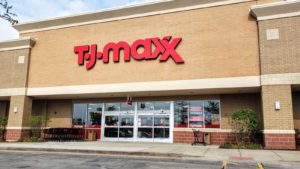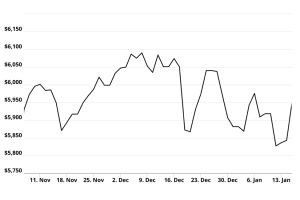
The U.S. retail sector, recognized as the world’s largest, has demonstrated remarkable resilience. It expanded by nearly 20% in 2021 with strong growth continuing into 2022. This surge, fueled by $800 billion in stimulus checks and additional programs, presents attractive investment opportunities in retail stocks. And, it highlights the sector’s robust potential for continued profitability.
Despite the volatile environment marked by a 40-year inflation high in June 2022 and 11 Federal Reserve rate hikes by July 2023, consumer spending has remained robust. This unexpected endurance is partly due to wage increases.
Looking ahead to 2024, retailers are prioritizing the cultivation of customer trust, which is crucial for fostering profitable loyalty and securing repeat business. With customer acquisition costs soaring by 222% over the last decade, loyalty programs have become central. They enhance customer retention and provide valuable data for generating additional revenue.
Retail executives have pinpointed the enhancement of these programs as the top growth opportunity for 2024. This emphasizes a strategic shift toward personalized marketing efforts. This scenario suggests continued above-average growth in the sector, making it a promising area for investors.
Let’s examine three top retailer stocks to consider this month.
Ross Stores (ROST)

Ross Stores Inc (NASDAQ:ROST) operates Ross Dress for Less and dd’s Discounts. The company focuses on off-price retail that offers a wide range of brand-name and designer apparel, footwear and home fashions. These goods have significantly reduced prices compared to traditional department and specialty stores. This positioning makes Ross Stores Inc. a compelling option among retail stocks to buy, especially for investors looking for value.
Recently, the company reported Q4 earnings that surpassed average analyst predictions. The off-price retailer announced an earnings per share (EPS) of $1.82. This exceeds the Bloomberg consensus estimate of $1.65. Also, it represents an increase from the $1.31 EPS reported in the same quarter of the previous year.
Furthermore, quarterly sales hit $6.02 billion, marking a 16% year-over-year (YOY) growth and topping the estimated $5.79 billion. Looking ahead to the first quarter ending May 4, 2024, Ross Stores anticipates comparable store sales to rise by 2% to 3%. The EPS for the upcoming quarter is projected to be between $1.29 and $1.35. That’s an increase from the $1.09 reported in the first quarter that ended on April 29, 2023.
Home Depot (HD)

Home Depot (NYSE:HD) is the largest home improvement retailer in the U.S. Their product focus includes building materials, home improvement supplies, appliances, tools and garden products. They cater to both DIY customers and professional contractors, emphasizing a comprehensive selection of high-quality products.
Home Depot stock has been pulling back in recent weeks, offering attractive valuations to long-term investors. The correction took place after the company posted a decline in comparable sales.
HD saw a 2.8% decrease in comparable sales YOY compared to the Bloomberg Consensus estimate of a 2.19% drop. U.S. comparable sales were also down by 3.2% against last year’s figures, more than the anticipated 2.35% decrease.
The home improvement retailer’s net sales for the quarter amounted to $36.42 billion. This is a 2.3% decline from the previous year, and slightly below the estimated $36.66 billion. Also, earnings per share fell to $3.63 from $3.82 YOY.
Customer transactions decreased by 1%, which was slightly better than the estimated decline of 1.09%. Average ticket sales reached $90.68, a 1.3% drop YOY, and just below the forecasted $90.77.
For fiscal 2024, Home Depot forecasts a 1.0% rise in total sales, influenced by an additional $2.3 billion from a 53-week year. Comparable sales for the standard 52-week period are predicted to fall by about 1.0%.
TJX Companies (TJX)

TJX Companies (NYSE:TJX) operates T.J. Maxx, Marshalls and HomeGoods. The company specializes in brand-name and designer goods at discount prices, creating a treasure-hunt shopping experience with frequently changing inventory.
Recently, the company reported strong earnings, announced a 13% increase in its stock dividend. And, it plans to buy back between $2 billion and $2.5 billion of its shares in 2025. These moves position TJX as a compelling option among retail stocks to buy, appealing to investors seeking growth and stability.
In addition, Goldman Sachs (NYSE:GS) and UBS (NYSE:UBS) have raised their ratings on TJX. In fact, Goldman Sachs also increased its price target from $100 to $110. The firm’s confidence is based on TJX’s robust U.S. performance and its ability to attract consumers looking for value and variety.
This trend is expected to continue, driving foot traffic and boosting comparable store sales. Additionally, TJX’s strengthening relationships with brands are anticipated to enhance merchandise margins and profit growth, supporting a positive outlook for the company.
On the date of publication, Shane Neagle did not hold (either directly or indirectly) any positions in the securities mentioned in this article. The opinions expressed in this article are those of the writer, subject to the InvestorPlace.com Publishing Guidelines.




